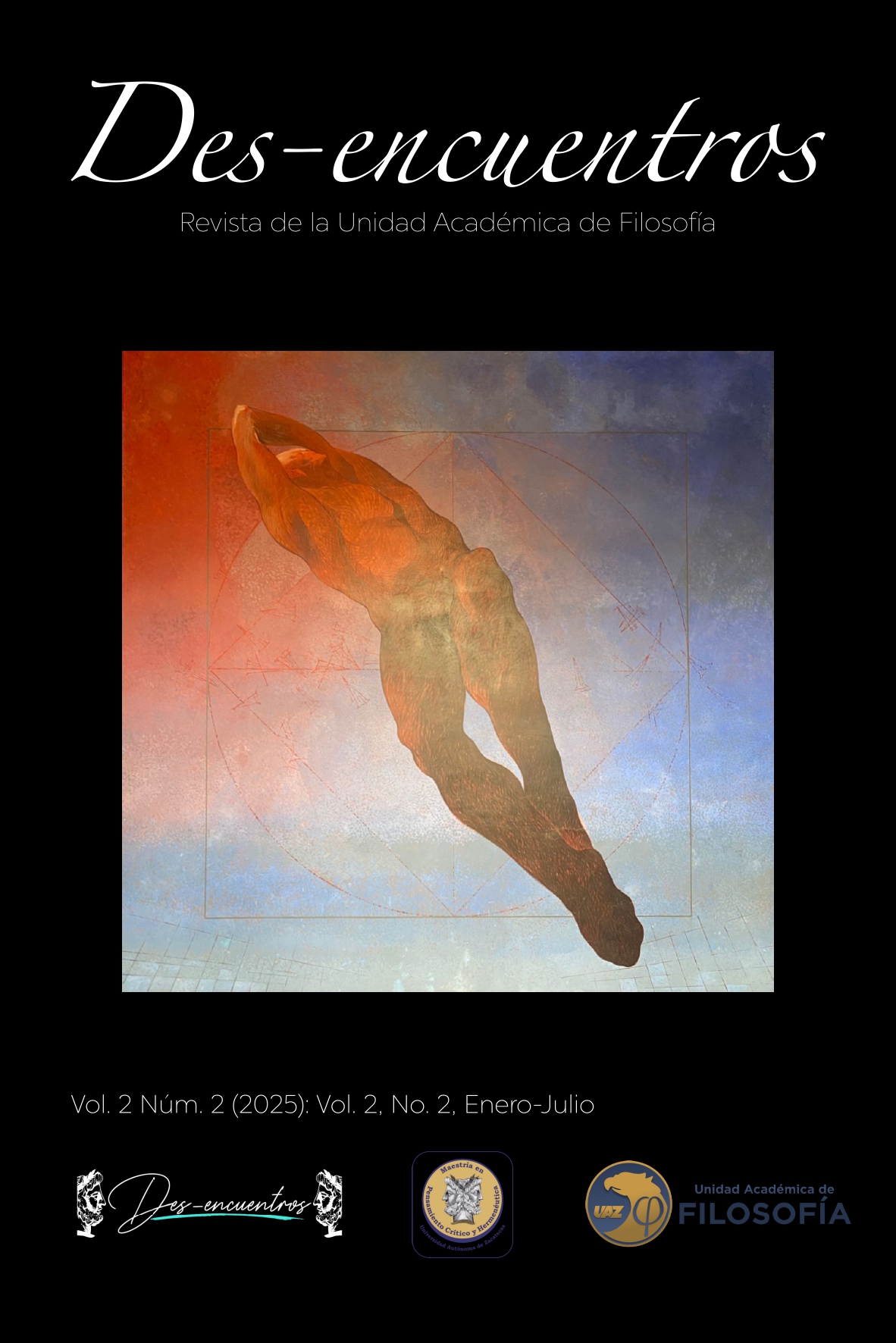Published 2025-06-05
Keywords
- the concrete,
- the affective,
- the everyday life,
- existence,
- hermeneutics
How to Cite
Abstract
In the late 19th and early 20th centuries, hermeneutics abandoned its abstract and hierarchical approach to root itself in the concrete, the affective, and the everyday life. Far from thinking of ourselves as mere knowing subjects, this vital shift in hermeneutics allows us to conceive ourselves as existences inextricably woven from the external world, from other existences, from their life in time, and from their interaction. I believe that returning our attention to this shift is of greater importance today for creatively confronting our vital –and not merely intellectual– difficulty in understanding existence. Perhaps it may even serve as an antidote that allows us to recognize the unfounded nature of a fear that, in the face of the complexity, ambiguity, or the diverse proportions that are inescapable in life, threatens to produce simplistic, reactive, and regressive forms of thought.


